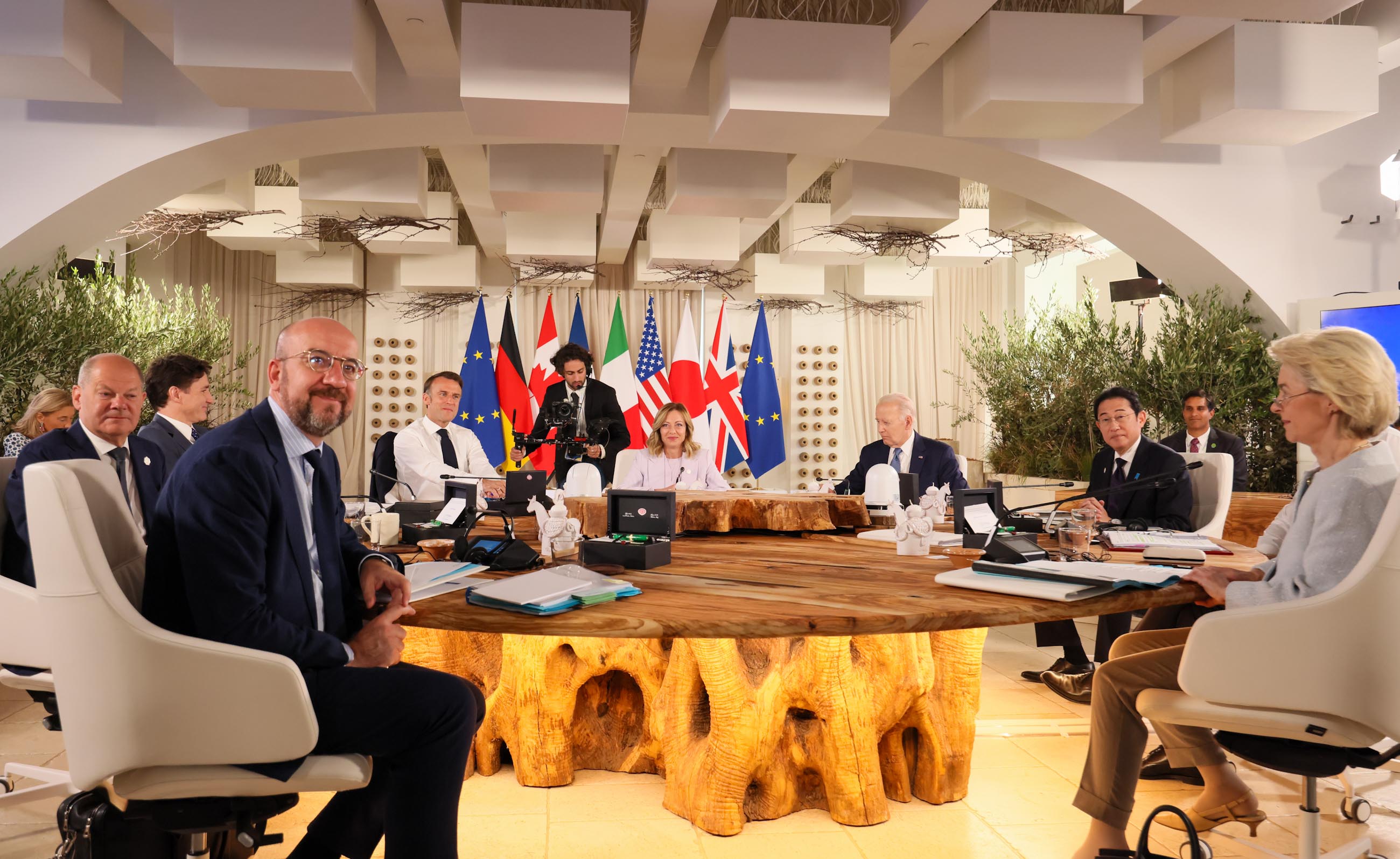G7 Apulia Summit Session 4 “Migration” (Summary)
[Provisional translation]
On June 14, commencing at 9:50 a.m. (local time; 4:50 p.m. JST), Mr. KISHIDA Fumio, Prime Minister of Japan, attended the G7 Apulia Summit Session 4 “Migration,” for approximately 80 minutes. The overview is as follows.
1. Prime Minister Kishida stated that migration is an international issue in which a variety of elements are intertwined in a complex manner and cannot be solved by a single country alone. He further pointed out the need for integrated measures involving the countries of origin, transit, and destination.
2. Prime Minister Kishida explained that Japan has been carrying out efforts focusing on “people,” attaching importance to ensuring human dignity and human security for both migrants and host communities. He also explained that Japan has supported the protection and empowerment of refugees, internally displaced persons, returnees, and host community residents through the Trust Fund for Human Security in countries including Moldova, Somalia, and Lebanon.
3. On the three pillars proposed by Italy, namely, (1) addressing root causes in the countries of origin, (2) tackling transnational organized crime involved in migrant smuggling, and (3) establishing regular pathways for migration, Prime Minister Kishida remarked on each as follows.
(1) Prime Minister Kishida stated that comprehensive efforts are needed to address root causes in the countries of origin, such as the improvement of employment and economy, addressing climate change and environmental issues, and ensuring security, and that Japan has been providing support to Africa in these various areas. He further stated that Japan views Africa as a partner growing together through the Tokyo International Conference on African Development (TICAD), and will connect the outcomes of this G7 Summit to the 9th TICAD (TICAD 9) next year.
(2) To tackle transnational organized crime involved in migrant smuggling, Prime Minister Kishida stated that it is necessary to take measures each in the countries of origin, transit, and destination. He introduced Japan’s cooperation based on the United Nations Convention against Transnational Organized Crime, as well as support for strengthening border control capacities in developing countries through contributions to the United Nations Office on Drugs and Crime (UNODC). Prime Minister Kishida further stated that Japan has provided support to African countries such as Egypt, Kenya, and Côte d’Ivoire to strengthen their border control authorities’ capacities related to combating smuggling, trafficking in persons, and other crimes through the International Organization for Migration (IOM).
(3) Concerning the establishment of regular pathways for migration, Prime Minister Kishida pointed out the importance of considering the circumstances and systems of each country. He also underlined the importance of addressing refugees, and stated that it is necessary to make efforts to ease the pressures on host countries. Prime Minister Kishida further explained that Japan is providing assistance to refugees and displaced persons for their self-reliance through education and vocational training, in coordination with international organizations and others.
4. G7 Leaders shared the view on the importance of addressing these multiple elements of migration.
